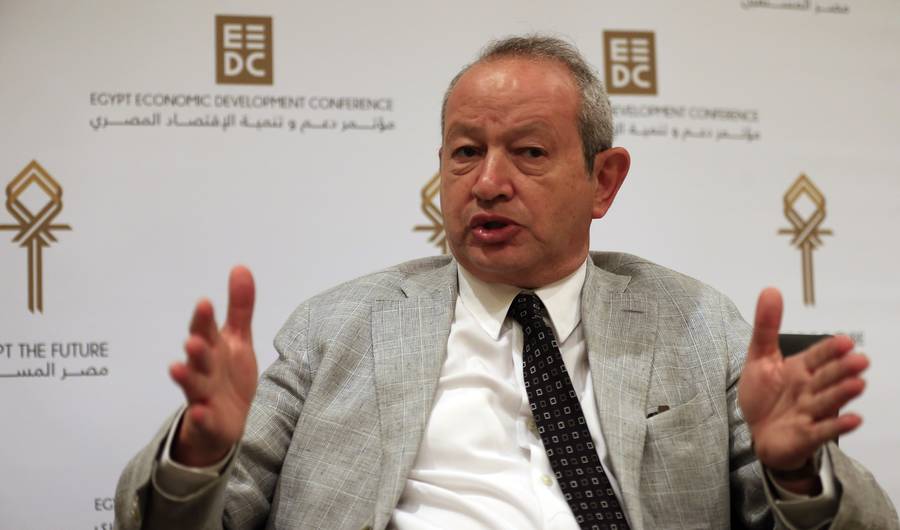This Egyptian Billionaire Wants To Buy An Island For Refugees
Crazy or courageous?

NEW DELHI: This week, the world watched in horror as the body of three year old Syrian refugee Aylan washed ashore the coastal town of Bodrum in Turkey -- focusing the spotlight on the refugee crisis and the Syrian civil war. Conflict in West Asia and parts of Africa has resulted in a growing refugee problem, with millions of people escaping war in their home country for what seem like safer shores. Many die making the tortuous journey, and Aylan, his brother and mother, were amongst those who couldn’t make it when their overloaded boat capsized. Distressingly, there seems to be no solution in sight -- Europe currently stands divided, with Germany and France ordering the European Commission to come up with a new “permanent” and binding regime for spreading the refugee load around all of the 28 countries in the union. Britain’s David Cameron and Theresa May want to have nothing to do with this plan, and Hungary, Poland, Slovakia and the Czech Republic just told France and Germany to hell with it.
Amidst all this negativity, there seems to be an unlikely hero, albeit the reasonableness of his plan is up for debate. Naguib Sawiris, a telecom magnate Forbes estimates is worth $2.9 billion, has offered to buy a Greek or Italian island to house thousands of refugees. “Greece or Italy sell me an island,ill call its independence and host the migrants and provide jobs for them building their new country,” Sawaris had posted on Twitter in September, with the Tweet now gaining widespread attention.
Sawaris says he is looking for the appropriate island, which he believes will cost between $10million to $100million, although it will need more for infrastructure and aid. Asked by AFP whether he believed it could work, he said: "Of course it's feasible." "You have dozens of islands which are deserted and could accommodate hundreds of thousands of refugees."
There would be "temporary shelters to house the people, then you start employing the people to build housing, schools, universities, hospitals,” he added. "And if things improve, whoever wants to go back (to their homeland) goes back.”
Of course, the plan does have problems -- starting with convincing Greece or Italy to sell an island, and figuring out jurisdiction and customs regulations.
Recently, Sawaris said that he has a name for the island: ILAN, after Aylan.
Sounds a bit far fetched but Sawaris isn’t the first tycoon to have put forth a plan like this. Millionaire California real estate tycoon Jason Buzi proposed a similar plan earlier this year, saying that the world needs to come together and create a new country for refugees to live in.
The idea of an island/nation for refugees has many problems, such as conflating refugees and stateless persons, focusing on exclusion rather than inclusion, will this nation be formed on coercion or consent? Read this article by a scholar on refugee migration for the details.
However, given the magnitude of the refugee crisis - with 60 million displaced persons and 20 million refugees -- there are some positives as well. One such positive is self governance and the recognition of autonomy. The most important positive however is that it’s at least a creative solution, whereas the more feasible solutions have gotten stuck in political bickering.
Alexander Betts, Professor of Refugee and Forced Migration Studies at the University of Oxford, wrote in the Guardian: “The idea is most usefully deployed as a metaphor for creative thinking about the political geography of asylum. Rather than actually seeking one single territory in the world to house the world’s refugees, Refugee Nation should offer a source of inspiration for ways in which we can collectively reimagine and reinvigorate asylum. These should work to offer autonomy and opportunity for refugees, based on innovative and non-traditional conceptions of territory. A range of models could support this.
First, trusteeship offers a historical precedent. As Robin Cohen has highlighted, during the inter-war period the League of Nations managed territories in the collective interest, and such an idea might be used today to host and protect refugees. Cohen is right to suggest that internationally managed territories might offer creative ways to liberate refugee governance from restrictive host states.
Second, zonal development provides a neglected and potentially interesting solution. There are historical precedents of refugees being located to underdeveloped border regions, often making a significant difference to long-term development. Such ideas could be revived. In Jordan, for instance, the King Hussein bin Talal Development Zone is a special economic zone just 15 minutes drive from the Za’atari refugee camp. It currently lacks two things: labour and investment. Yet, reconceived, it might offer an opportunity for refugees to have greater autonomy while contributing to the host economy’s national development strategy.
Third, Paul Romer’s idea of charter cities offers a way of creating designed urban areas in which a particular community’s needs could be met. If refugee camps could be rethought with the opportunities of, say, a university campus or a functioning city, they might offer opportunities for human flourishing, built upon representation and self-governance, even on a temporary basis. Urban planning offers many insights into how to build vibrant, cosmopolitan cities, and yet too rarely are these lessons and insights applied to refugees settlements.”



